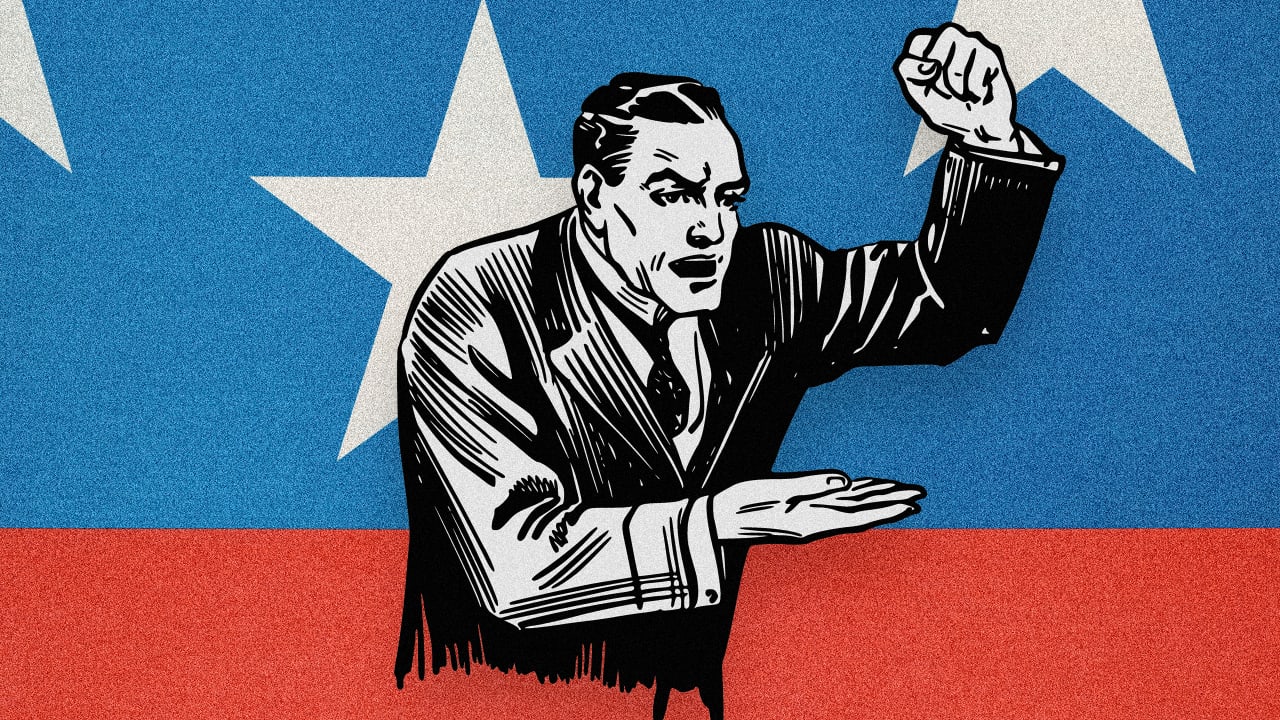A picture is worth a thousand words. Yet a three-letter acronym might be even more powerful—and a growing problem for business.
As America’s former and current presidents careen toward a November rematch, the country’s growing division and the words being used in the political campaigns are fast becoming business reputation and risk factors.
A National Association of Corporate Directors Survey listed “increased political polarization” among the top issues facing boards in the next 12 months. In fact, in a Harris Poll survey, 58% of American workers said political polarization is a significant problem in their company today, and 79% say it’s negatively affecting business operations.
What’s going on?
Politicians calling out corporations as “woke” and putting question marks over DEI and ESG are putting companies in a bind. We asked Americans which words being used in business and in politics are more likely to bring people together or divide them. Internally, we shorthanded the poll as our “toxic Wordle.”
All the words we showed respondents—from “cancel culture” (most divisive) to “community” (least divisive)—alienate 46% of Americans (up 7% points from December). If you’re communicating with Republicans, “underrepresented,” “ESG,” “DEI,” and “gender” become even more problematic. Among Democrats, steer clear of “patriotic,” “faith-based,” “traditions,” and, of course, “conservative.”
We also uncovered seemingly well-meaning terms that are alienating the very communities they’re meant to champion. “BIPOC” is seen as divisive to 48% of Black and 45% of Hispanic Americans. “Latinx” turns off 40% of Latinos.
Acronyms and labels like DEI and ESG have become like dog whistles. Americans hear them and react politically instead of rationally. Part of the problem is a lack of understanding when businesses speak in code. Today, two-thirds of Americans do not have a clue what ESG is, yet many say, “it’s bad.”
In our data, while 62% of Americans find the acronym ESG to be divisive only 35% say the same about sustainability. Similarly, swapping DEI (49% divisive) for equality (only 30% divisive) improves understanding and acceptance.
The lesson for business is that loose jargon and acronyms hold back progress. Importantly, the acronyms are causing the issues—not the concepts themselves.
Social good and progress are desired by Americans. When it comes to diversity—versus the DEI acronym—a Black Economic Alliance-Harris Poll survey found that 78% of Americans want companies to reflect the diversity of the U.S. population. They also believe racial diversity helps businesses reach a broader set of customers (86%), foster innovation (84%), boost profitability (79%), and retain employees (79%).
With political polarization sure to become an even bigger problem during the next nine months leading up to the U.S. general election, here are five recommendations for business leaders today.
Avoid jargon
Don’t invite business risk with acronyms and politicized language. Instead, be intentional and specific: Clearly describe how your initiative ties to your business and whom it benefits. In our Harris Poll data, 44% of Americans say it’s very important to know your audience and prioritize stakeholders regarding social issues.
Only use language you can defend
Companies ask for trouble when they virtue-surf. It’s vital to speak from experience. In fact, 84% of Americans say companies need to have a track record of acting on their values to be taken seriously, while 44% say it’s important to live out company values in all areas of operations.
When you divide, you subtract
Whether you have a red brand or a blue brand, you have less of a brand. Strive to unite. Eighty percent of Americans say it is important to focus on unifying social messages and programs. Prioritize programs that cast the most benefit and resist the temptation to please everybody. Ask if your programs will bring people together or drive them apart.
Less is more
After George Floyd’s murder, many companies rushed in to make promises they didn’t ultimately keep or know how to keep. A Harris Poll-HUE survey found that 80% of human resource directors reported their companies had implemented diversity initiatives. At the same time, 81% of employees in those companies had not made progress toward racially diverse hiring. Instead of making bold proclamations, narrow what you talk about and be able to celebrate tangible results. Ultimately, it’s not what a company says but what it does that matters.
Never backtrack on ethics and values
Once you decide to speak out, never retreat. Have a plan to defend your ground and be ready to double down on your values. Last year’s biggest corporate crises came from flip-flopping. In fact, 79% of Americans say it’s important to refuse to backtrack on social stances when facing backlash. One way to scandal-proof your communications is to bring in outside voices from different cultural and political contexts.







